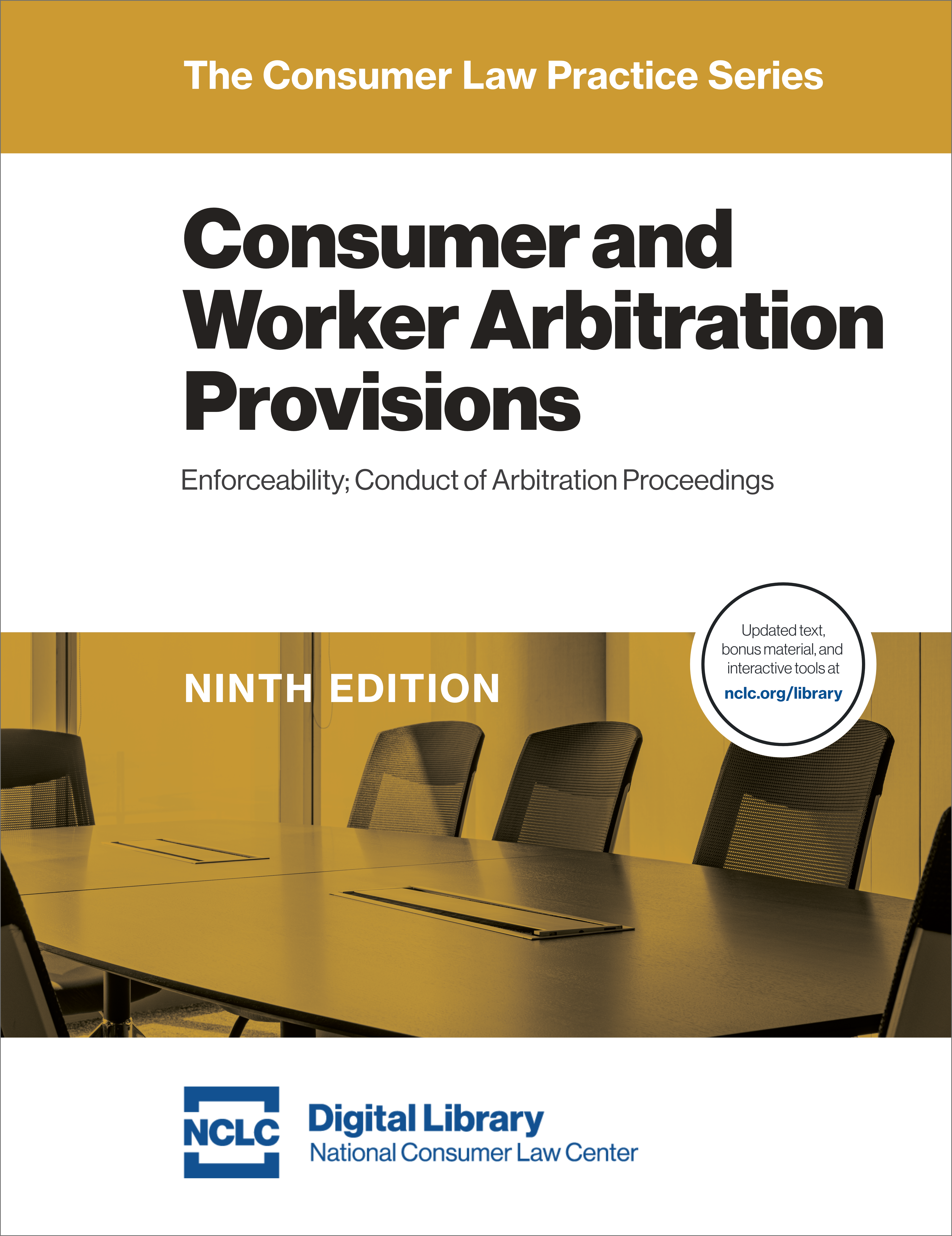Search
Bad News for Debt Collectors
CFPB Proposed Rule: No Mandatory Arbitration for Class Actions
Class Arbitration After Supreme Court’s April 24 Lamps Plus Decision
Congress Amends Eight Consumer Statutes
Federal Remedies for Used Car Fraud Just Got Even More Powerful
FTC Amends Used Car Rule; How to Challenge "As Is" Car Sales
FTC Bans Telechecks, Other Abusive Payments in Telephone Sales
The Qualified Principal Indebtedness Exclusion Revived and Extended for Two Years
**This exclusion has been extended to income forgiven in 2017. Read more here.**
The TCPA Year in Review: Spokeo, FCC Rulings, and a Torrent of Court Decisions (updated February 6, 2017)
2016 was an active year for changes concerning the Telephone Consumer Protection Act (TCPA). This article highlights the following changes, with more detail found in NCLC’s Federal Deception Law ch. 6, as most recently updated online on January 6, 2017 (The chapter has now been updated online again on February 6, 2017, including a new January 30, 2017 Ninth Circuit decision in Van Patten v. Vertical Fitness Grp.):
The Latest Actions to Limit Forced Arbitration
Supreme Court May 13 Ruling Underscores Advantages of False Claims Act Litigation
Supreme Court Rejects Lien Strip Off in Chapter 7 Cases
The Supreme Court on June 1 has just held in Bank of America, N. A. v. Caulkett that a wholly underwater mortgage cannot be stripped off and voided using Bankruptcy Code § 506(d) in a chapter 7 bankruptcy case.
New CFPB Rule on Payday, Auto Title, and Installment Loans
New Developments Limit Arbitration of FDCPA, Other Claims Against Debt Buyers and Collectors
New Magnuson-Moss Rules Aid Consumer Warranty Litigation
On May 28, 2015, the FTC announced new changes to its rules under the Magnuson-Moss Warranty Act that, effective July 20, 2015, will significantly aid private consumer warranty litigation. The details and impact of the new rules are reflected in revised versions of Chapters 2 and 13 of NCLC’s Consumer Warranty Law, now available on-line.
New Medical Debt Developments
New IRS regulations, attorney general settlements, and CFPB actions offer key new protections relating to delinquent medical debt. These are all covered in the updated online version of Chapter 9 of NCLC’s Collection Actions (3d ed. 2014). Click on highlight updates at the top of a page to see the new changes added since the print edition. Highlights include:
New Ways to Maximize Attorney Fees Where Claim Pursuant to FTC Holder Notice
Practice Implications of July CFPB Arbitration Rule, Other Arbitration Developments (Updated)
Prepaid Card Rule Latest Regulation of Fast-Changing and Novel Payment Devices
Ruling on CFPB’s Unconstitutionality Leaves Agency Intact
Shortening the Limitations Period on Credit Card Collection Lawsuits
Spokeo Resources (for subscribers AND for non-subscribers)
Analyses and briefs to facilitate individual rights representation, addressing standing challenges based on the Supreme Court’s May 16, 2016, decision in Spokeo v. Robins:
Statute-Specific Spokeo Analyses
Telephone Consumer Protection Act Spokeo analysis:
